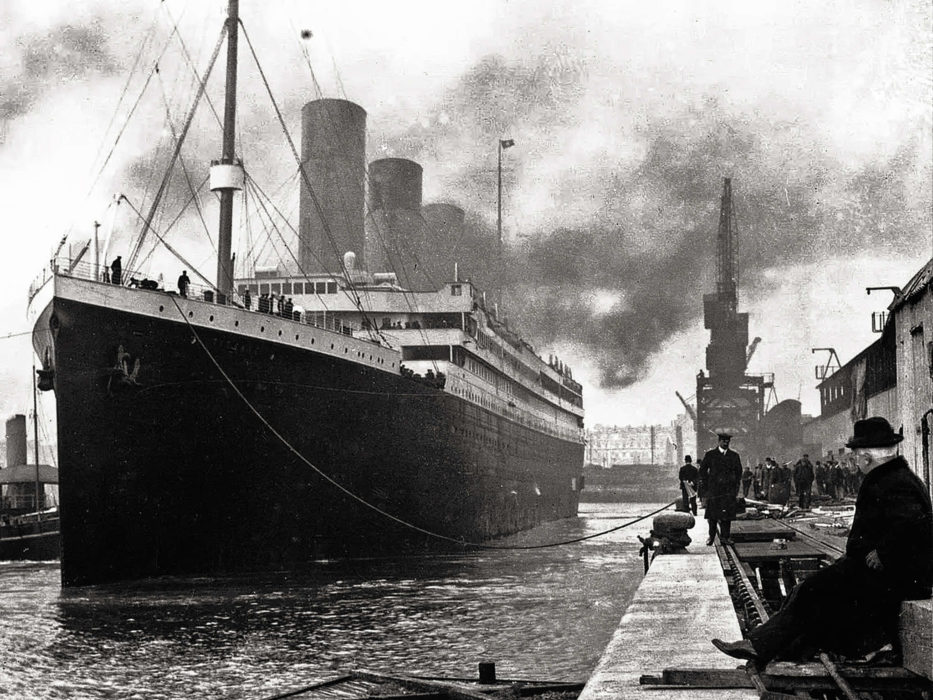“IT TAKES A TERRIBLE warning to bring us back to our moorings and our senses,” the Senator declared, referring to the Titanic disaster.
It was May 28, 1912, and the Senate hearings into the Titanic were in full swing. Senator Isidor Rayner of Maryland took the floor and summarized the lessons the shipwreck offered the nation. After commenting on maritime law, legal jurisdiction, and safer navigation, he allowed himself a personal flourish.
“There is another lesson,” he noted, “of far greater and more overwhelming significance than the lesson of corporate responsibility, and that is the lesson of religious faith.” For the Senator the Titanic served as a reminder to the wayward nation, which he felt was “abandoning the devout and simple lives of our ancestors.”
Rayner’s speech was printed along with the Senate report, buried amidst 1,100 pages of text. It would never have seen the light of day, except that on July 7, 1912, in a ‘Letter to the Editor’ of the New York Times, a reader brought it to the attention of the paper’s 100,000 subscribers.

Three months had passed since the Titanic had disappeared beneath the sea. “The mind stands aghast and appalled as these calamities come thick and fast,” Senator Raynor told his colleagues. But it was more than just a ship and its passengers that had stunned the public in both Great Britain and America – it was the very idea of the wreck.
Fifteen thousand people had labored for more than three years to bring the Titanic into being. It was the largest construction project since the creation of the pyramids. In the opening decade of a new century, it symbolized the ingenuity and technological know-how that would propel humankind into a new age.
Then she sank on her maiden voyage.
The day after the disaster the stock markets plunged. In New York, thousands of people wandered the streets in tears. “We forget in our moments of sorrow that it never was intended that the intellect of man should reason out such a problem,” Senator Rayner said.
Rayner was sixty-two years old when he addressed the hearings. He was nearing the end of a long career of public service, and was a devout Jew. “We are to a large extent today defying the ordinances of God,” he stated. “[T]he sooner we awaken to a . . . sense of our responsibility the better it will be for the spiritual elevation of the country.” The nation, he felt, was “running mad with the lust of wealth and of power and of ambition.”
‘Abdu’l-Bahá, who had been offered tickets on the Titanic, had spoken about the tragedy in Washington just as the Senate hearings began. “Although such an event is indeed regrettable,” he said, “we must realize that everything which happens is due to some wisdom.” He was consoled, he noted, “by the realization that the worlds of God are infinite . . .”
Like Senator Rayner, ‘Abdu’l-Bahá perceived a deeper meaning in the Titanic disaster. “We are living in a day of reliance upon material conditions,” he stated. “Men imagine that the great size and strength of a ship, the perfection of machinery or the skill of a navigator will ensure safety, but these disasters sometimes take place that men may know that God is the real Protector.”
Yet ‘Abdu’l-Bahá was also pragmatic. “Let no one imagine that these words imply that man should not be thorough and careful in his undertakings,” he said. “[H]e must provide and surround himself with all that scientific skill can produce. He must be deliberate, thoughtful and thorough in his purposes, build the best ship and provide the most experienced captain; yet, withal, let him rely upon God and consider God as the one Keeper.”
Senator Rayner, for his part, concluded with a warning: “If this disaster teaches no lesson or points no moral, then let us pass it by with stoical indifference until the next disaster comes, and in the meantime let the carnival go on.”






